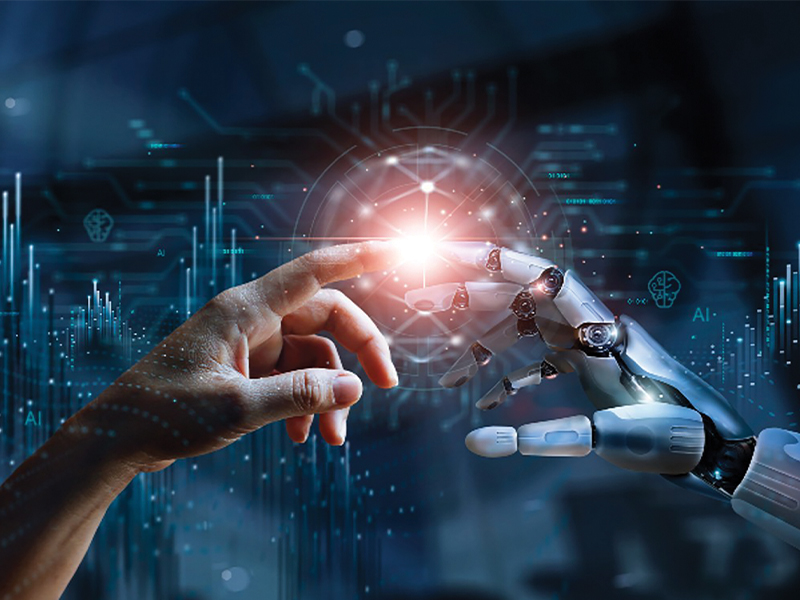Artificial intelligence (AI) is a technology that has expanded rapidly in recent years due to the ability of computers to process and analyze large amounts of data. AI involves developing systems that can perform tasks that would normally require human intelligence, such as learning, reasoning, and decision-making. Although AI has not yet reached its full potential, it is known that it will have a great impact on the future of our society.
Benefits of AI
AI has many potential benefits that can positively impact our lives. Some of them include:
1. Automation of dangerous or repetitive jobs: Robots and other AI-based tools can be used to perform actions that may be dangerous to humans, such as maintaining power lines or cleaning contaminated areas.
2. Improved efficiency and productivity: Analysis of large amounts of data can be used to optimize production processes, which reduces costs and production time, and can lead to improvements in product quality.
3. Advances in medicine: AI can be used to analyze large amounts of medical data and help diagnose diseases and treat them more effectively.
4. Security improvements: AI can be used to prevent crime and terrorism by identifying patterns and detecting suspicious behavior.
Dangers of AI

Although AI has many benefits, there are also concerns about its negative impact. Some of the possible dangers of AI include:
1. Loss of jobs: With the automation of tasks, many people could lose their jobs. Some studies suggest that as AI develops, some jobs will be replaced by robots and automated systems.
2. Economic inequality: The automation of jobs could result in an increase in economic inequality, with even greater concentration of wealth among employers who have the technology necessary to keep companies automated.
3. Privacy threats: The amount of data collected and analyzed by AI systems can pose a privacy threat. Improper use of this information may result in the violation of personal and civil rights.
4. Glitches: AI systems are not yet perfect, and can be overloaded or experience glitches that could have disastrous consequences.
Overall, the impact of AI on our lives is still uncertain, and both its benefits and dangers cannot be fully understood at this time. However, what is clear is that AI will have a significant impact on society, and it is important to continue monitoring its development and make efforts to minimize any risks that may arise.
Nova-Artificial Intelligence
Disclaimer:
soulless
Thanks to the motivation generated by our director, I took on the distressing task, I have to admit, of venturing into the so-called Artificial Intelligence. And I say, "distressing," because I was afraid of what I might find, especially with regard to part of my job, writing. I had a tremendous surprise when I asked Nova to write me the article you just read, with a certain length of words, and in just seconds she did it. Good for the content, veracity, writing, spelling, and with a certain degree of self-criticism, but extremely cold, lacking the “warmth” of the necessary imagination and own style that characterizes us, writers. AI is taking over the world, this will be the fictional world of Borges' Tlön, also confirming what was predicted by the Polish writer Lem, when he stated that technology will always be used for evil. In the event of being replaced by these "technologies", I wish the art of writing a "fountain" of ice, a world full of "perfect" letters without the imperfection of true feeling, without the imperfection of the soul with its genetic map and its carved history. Whoever or those are preparing to replace us, the only thing they will achieve is to forget the essence of the style, of the uncommon, and valuable, for the rest, that we writers carry in our blood, and remind us, with pain, how dull it can be. artificiality with its grotesque trinket of expeditious perfection, devoid of soul.
Oscar Arenas
Editor





